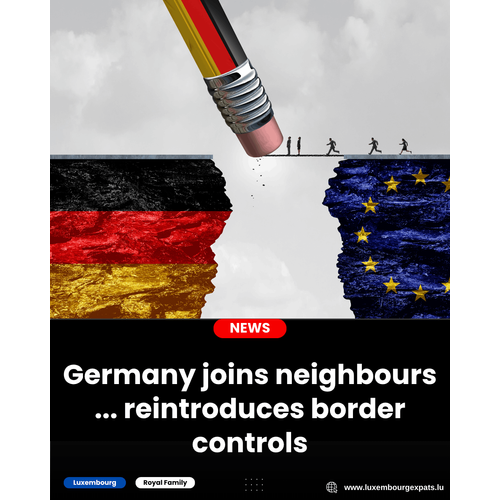Germany Joins Regional Neighbors in Reintroducing Border Checks: Travel Disruption and Migration Policy Shakeup
LuxembourgPosted on 19 July 2025 by TeamGermany Joins Regional Neighbors in Reintroducing Border Checks: Travel Disruption and Migration Policy Shakeup
Recent months have witnessed a sweeping change in travel and mobility across central and western Europe. Germany has joined France, Belgium, Luxembourg, the Netherlands, and Denmark in temporarily reinstating border controls within the Schengen Zone, citing concerns over irregular migration and security. This coordinated policy move is sending ripples through summer travel, leading to increased border wait times and uncertainty for millions of passengers.
Why Are Border Checks Returning?
The reintroduction of checks is a direct response to a spike in undocumented migration, with governments emphasizing both security risks and the need to uphold effective migration management. Incidents such as recent high-profile attacks have intensified public debate and compelled national authorities to strengthen their oversight at borders. While the Schengen Zone normally allows for passport-free travel, its code permits member states to reimpose controls temporarily in the face of threats to public policy or internal security.
Who Is Affected and How?
The new restrictions affect all travelers crossing Germany's land borders with neighboring countries—Austria, France, Belgium, Luxembourg, the Netherlands, Denmark, Switzerland, Poland, and the Czech Republic. Similar measures are being adopted in Belgium, where authorities focus on main roadways, international trains, and airports, with some exceptions. Notably, Belgium has announced that Luxembourg will be spared from its border checks, a move that surprised many and was backed by direct bilateral consultation between the two countries.
Travelers crossing affected borders should be prepared for:
- Longer traffic queues and possible congestion at border posts, especially on major highways.
- Delays for long-distance trains and bus services, as transport companies may be required to accommodate random inspections.
- Possible spot checks of passports and travel documents, even for EU citizens accustomed to borderless travel.
Operational Changes and Duration
Germany's new border checks are expected to remain in place for at least six months, with similar timelines adopted by other countries in the region. The checks are being implemented via a combination of stationary and mobile policing measures, including the deployment of thousands of additional border officers. In Germany, entry can be denied to undocumented migrants or travelers lacking valid documentation, reflecting a hardening stance on asylum and migration policy.
Broader Implications and Debate
This coordinated border clampdown represents a significant shift for the Schengen vision of open European borders. It has raised debates about the long-term sustainability of border-free travel and the broader effects on European unity. Critics argue that these steps signal a rollback in European integration, while government officials maintain that they are necessary to balance humanitarian responsibilities with national security needs.
With summer in full swing, travelers are urged to stay informed about up-to-date border requirements and to expect the possibility of delays. The coming months will be a test for both policymakers and everyday travelers as the region navigates a new, less predictable phase in cross-border mobility.
---
Join Luxembourg Expats Online for Free : luxembourgexpats.lu
I am your contact
Team
Chat









